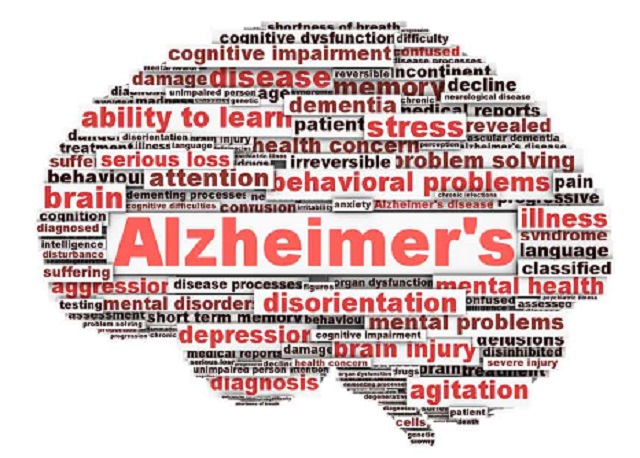
The Sunday News

Lee-Anne Hall
IN this week’s article I will clarify some terms and definitions and AD and Dementia.
Alzheimer’s disease (AD) is the most common cause of dementia. Dementia is a collective name for conditions in which progressive degeneration of the brain affects memory, thinking, behaviours and emotion.
Symptoms: Difficulty remembering recent conversations, names or events is often an early clinical symptom; apathy and depression are also often early symptoms. Later symptoms include impaired communication, poor judgment, disorientation, confusion, behaviour changes and difficulty speaking, swallowing and walking.
Revised criteria and guidelines for diagnosing Alzheimer’s were published in 2011 recommending that Alzheimer’s be considered a slowly progressive brain disease that begins well before symptoms emerge.
Brain changes: Hallmark abnormalities are deposits of the protein fragment beta-amyloid (plaques) and twisted strands of the protein tau (tangles) as well as evidence of nerve cell damage and death in the brain.
Dementia can affect a person in different ways, and progression of the disease depends upon the impact of the disease itself and the person’s personality and state of health. Dementia can be divided in three stages:
– early stage — first year or two
– middle stage — second to fourth or fifth years
– late stage — fifth year and after
What is AD?
Alzheimer disease (AD) is characterised by a progressive decline in cognitive function. AD is substantially increased among people aged 65 years or more, with a progressive decline in memory, thinking, language and learning capacity. AD should be differentiated from normal age-related decline in cognitive function, which is more gradual and associated with less disability. Disease often starts with mild symptoms and ends with severe brain damage. People with dementia lose their abilities at different rates
1 The early stage is often overlooked. Relatives and friends (and sometimes professionals as well) see it as “old age”, just a normal part of ageing process. Because the onset of the disease is gradual, it is difficult to be sure exactly when it begins.
— Become forgetful, especially regarding things that just happened
— May have some difficulty with communication, such as difficulty in finding words
— Become lost in familiar places
— Lose track of the time, including time of day, month, year, season
— Have difficulty making decisions and handling personal finances
— Have difficulty carrying out complex household tasks
— Mood and behaviour: — may become less active and motivated and lose interest in activities and hobbies — may show mood changes, including depression or anxiety — may react unusually angrily or aggressively on contact
2 Middle Stage: As the disease progresses, limitations become clearer and more restricting.
— Become very forgetful, especially of recent events and people’s names
— Have difficulty comprehending time, date, place and events; may become lost at home as well as in the community
— Have increasing difficulty with communication (speech and comprehension)
— Need help with personal care (i.e. toileting, washing, dressing)
— Unable to successfully prepare food, cook, clean or shop
— Unable to live alone safely without considerable support
— Behaviour changes may include wandering, repeated questioning, calling out, clinging, disturbed sleeping, hallucinations (seeing or hearing things which are not there)
— May display inappropriate behaviour in the home or in the community (e.g. disinhibition, aggression)
3 The last stage is one of nearly total dependence and inactivity. Memory disturbances are very serious and the physical side of the disease becomes more obvious.
— Usually unaware of time and place
— Have difficulty understanding what is happening around them
— Unable to recognise relatives, friends and familiar objects
— Unable to eat without assistance, may have difficulty in swallowing
— Increasing need for assisted self-care (bathing and toileting)
— May have bladder and bowel incontinence
— Change in mobility, may be unable to walk or be confined to a wheelchair or bed
— Behaviour changes, may escalate and include aggression towards carer, nonverbal agitation ( kicking, hitting, screaming or moaning)
— Unable to find his or her way around in the home.
Many people in Zimbabwe are suffering from AD and Dementia. As a result the prevalence is on the rise and it’s important to understand the different stages and well as how to manage them. This is a big topic therefore, I will write about it for the next couple of weeks to make sure the readers fully understand this topic.
Lee-Anne Hall
BSc Physiotherapy



